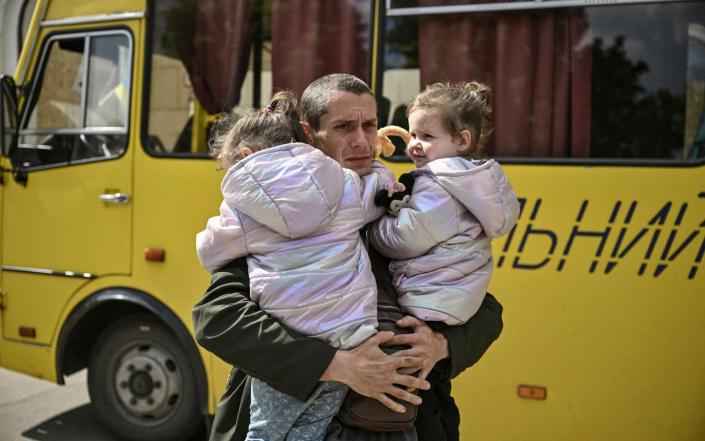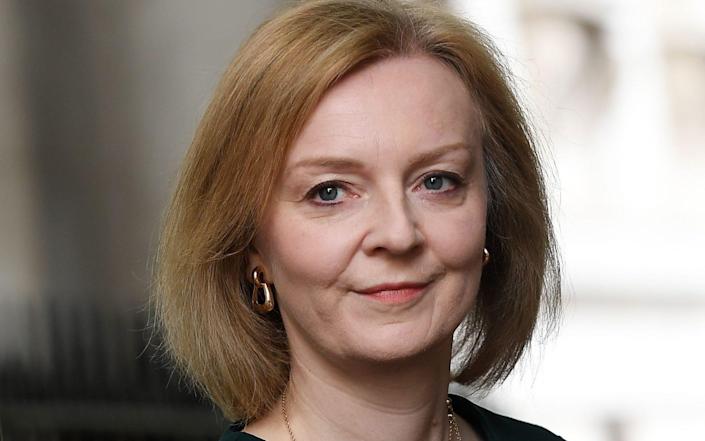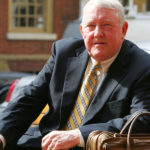President Volodymyr Zelensky has shut down suggestions that Ukraine should cede control of territory and make concessions to end the war with Russia, comparing the idea to attempts to appease Nazi Germany in 1938.
The refusal to give up territory in areas occupied by Russian forces comes as Ukrainian troops face a renewed offensive in two eastern regions that Russian-speaking separatists seized part of in 2014.
Former US Secretary of State Henry Kissinger this week suggested at the World Economic Forum in Davos that Ukraine should let Russia keep Crimea, which it annexed in 2014.
While the New York Times editorial board said on May 19 in order for negotiated peace to occur, Kyiv might need to make some hard decisions, given that a decisive military victory was not realistic.
“It seems that Mr Kissinger’s calendar is not 2022, but 1938, and he thought he was talking to an audience not in Davos, but in Munich of that time,” Mr Zelensky said in his nightly video address on Wednesday.
“Perhaps The New York Times in 1938 also wrote something similar. But now, let me remind you, it is 2022.
“Those who advise Ukraine to give something to Russia, these ‘great geopolitical figures’, never see ordinary people, ordinary Ukrainians, millions living on the territory they are proposing to exchange for an illusory peace.”
Follow the latest updates below.
01:17 AM
Hundreds of families get answers on fate of loved ones
The International Committee of the Red Cross has been able to give answers to 300 families in Russia and Ukraine about the fate of their loved ones.
ICRC Director-General Robert Mardini said the organisation’s work trying to determine the fate of missing persons was “very much on track”.
He did not disclose the fate of the Russians and Ukrainians, but said their families had provided “very concrete questions about their loved ones”.
Progress has also been made on the right of the ICRC to visit prisoners of war, which is part of the Geneva conventions.
“There is agreement on both sides … which is good news,” Mr Mardini said.
12:33 AM
Liz Truss: Vladimir Putin must be defeated, not appeased
Liz Truss will on Thursday warn against appeasing Vladimir Putin and tell Western allies there can be no backsliding in ensuring Russia is defeated in its war against Ukraine.
The Foreign Secretary will demand more weapons for Kyiv and more sanctions against Moscow in a speech to Bosnia and Herzegovina armed forces in Sarajevo’s Army Hall.
“Russia’s aggression cannot be appeased. It must be met with strength,” Ms Truss will say.
“We must not allow a prolonged and increasingly painful conflict to develop in Ukraine.”


12:29 AM
Fighting outside Severodonetsk ‘very difficult’
Lugansk regional governor Sergiy Gaiday described the fighting outside of the industrial city of Severodonetsk, a key military goal for Russia, as “very difficult,” as Russian troops shelled the city from the outskirts with mortars.
“The coming week will be decisive,” Mr Gaiday said in a video posted on Telegram.
He said he believes Russia’s goal is to “capture the Lugansk region no matter what cost”.
“There is a colossal amount of shelling,” he added.


12:20 AM
Today’s top stories
-
Fighting between Russian and Ukrainian forces reached the limits of the key eastern city of Severodonetsk, as the governor of the region described the combat as “very difficult”
-
President Volodymyr Zelensky is strongly rebuffing those in the West who suggest Ukraine cede control of areas occupied by Russia
-
Liz Truss will on Thursday warn against appeasing Vladimir Putin
-
Russian troops are outnumbering Ukraine’s forces by seven to one across the eastern Donbas region, it was warned, as pockets of resistance fought to keep their grip on the last Ukrainian-held cities
-
Vladimir Putin signed a decree simplifying the process for residents of Ukraine’s occupied Kherson and Zaporizhzhia regions to acquire Russian citizenship and passports
-
Russia’s parliament also approved a law removing the upper age limit for contractual service in the military amid heavy casualties
-
Ukraine’s foreign minister Dmytro Kuleba accused Nato of “doing literally nothing” in the face of the Russian invasion, while praising the EU for its “revolutionary” decisions to back Kyiv




